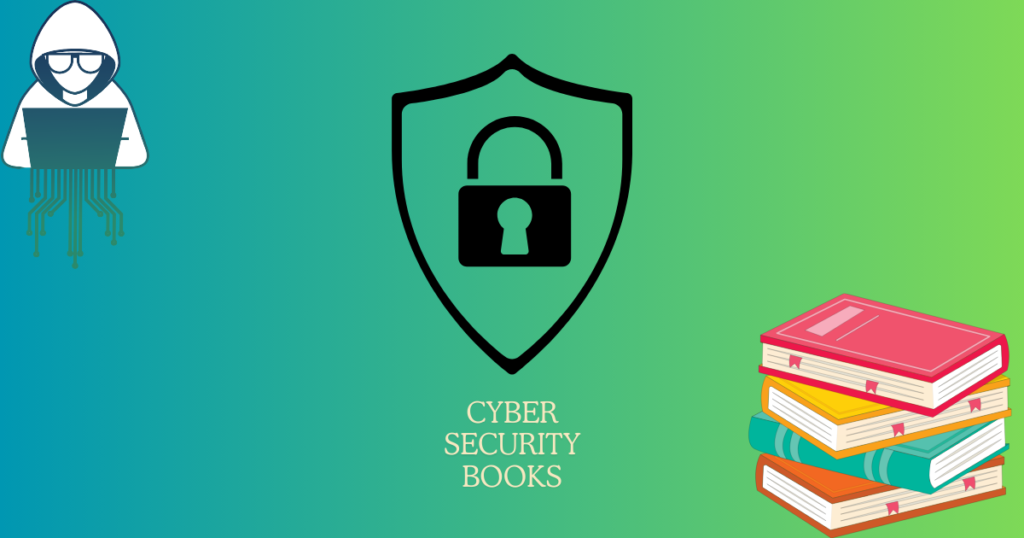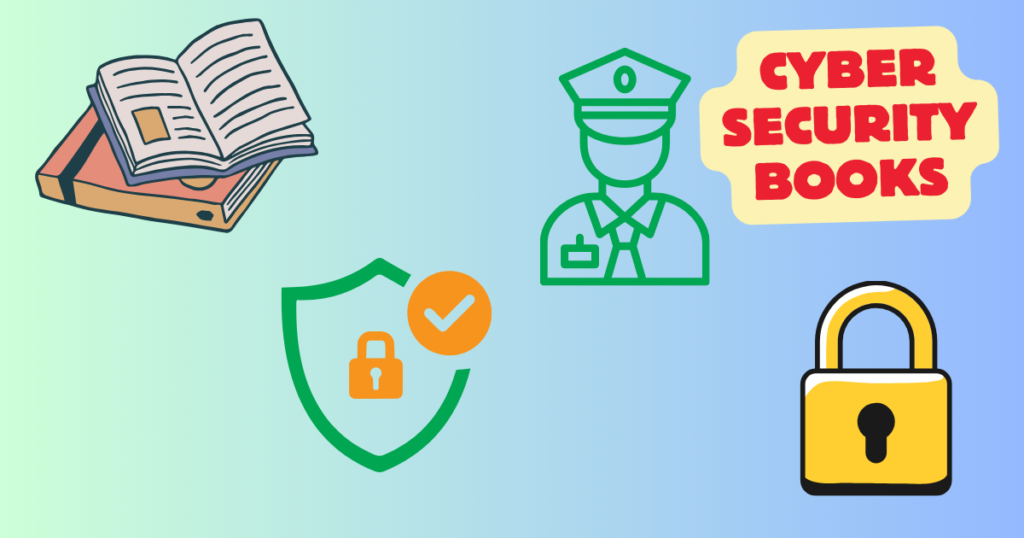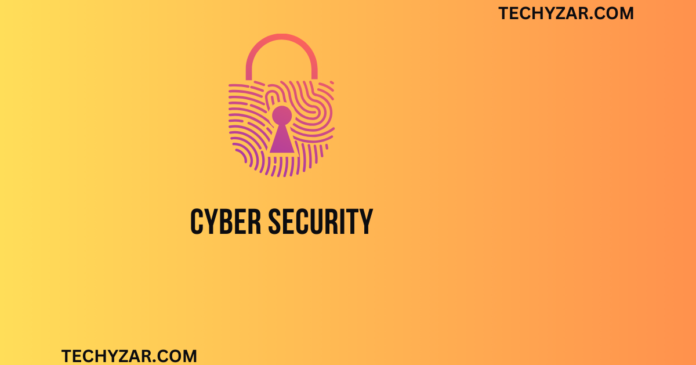Introduction:
Best Cyber Security Books ? In the quickly developing field of online protection, remaining educated and learned is fundamental for experts looking to shield advanced resources and battle digital dangers. The value of a good book cannot be overstated, despite the availability of numerous online resources and training programs. In this extensive aid, we’ll investigate the absolute best cyber security books, examine the viability of learning network safety through books, share undisputed top choices, and shed light on the best subjects to read up for hopeful network safety experts.

Best Cyber Security Books
1. “The Cybersecurity Canon: Books Every Cybersecurity Professional Should Read” by Rick Howard
“The Cybersecurity Canon,” by Rick Howard, stands out as the definitive reference for cybersecurity professionals. Drawing from a different scope of disciplines, Howard organizes a rundown of must-peruse books that cover key themes like danger insight, risk the executives, occurrence reaction, and moral hacking. This complete collection fills in as an important asset for both amateur and old pros hoping to extend how they might interpret network safety standards and practices.
2. “Hacking: The Art of Exploitation” by Jon Erickson, Best Cyber Security Books
“Hacking: The Art of Exploitation” by Jon Erickson provides a hands-on examination of the tools, strategies, and mindset of hackers for those who are interested in delving into the technical aspects of cybersecurity. Erickson provides readers with a deeper comprehension of the vulnerabilities that are inherent in computer systems and the strategies that are used to exploit them by way of concrete examples and case studies drawn from actual situations. With its accentuation on commonsense abilities and critical thinking, this book is a must-peruse for yearning moral programmers and security experts.
3. “The Phoenix Project: The Best Cyber Security Books or A Novel about IT, DevOps, and Helping Your Business Win” by Gene Kim, Kevin Behr, and George Spafford
While not a conventional online protection book, “The Phoenix Undertaking” offers important bits of knowledge into the convergence of IT tasks, security, and business strength. Gene Kim, Kevin Behr, and George Spafford examine the difficulties that modern businesses face in managing complex IT environments and responding to cyber threats through the lens of a fictional story. By featuring the significance of cooperation, readiness, and nonstop improvement, this book gives important illustrations to network protection experts trying to adjust security targets to business objectives.
Can You Learn Cybersecurity by Books?
The nuanced issue of whether cybersecurity can be learned by books on cybersecurity. While books act as significant assets for getting central information and understanding center ideas, they are not a substitute for involved insight and down-to-earth abilities improvement. Online protection is a powerful field that requires ceaseless learning, variation, and certifiable critical thinking. Consequently, there are some best cyber security books that can give a strong hypothetical establishment, hopeful online protection experts ought to supplement their perusing with useful activities, lab work, and cooperation in network safety networks and discussions.

Best Books For Computer Security/ Best Cyber Security Books
1. “The Art of Deception: Controlling the Human Element of Security” by Kevin D. Mitnick
One of my undisputed top choices in the domain of network safety writing is Kevin D. “The Art of Deception” by Mitnick. This dazzling book investigates the human side of safety, digging into the mental strategies utilized by programmers to control and take advantage of the human way of behaving. Mitnick demonstrates the significance of social engineering awareness and the requirement for comprehensive security awareness training programs through intriguing anecdotes and real-world examples.
2. “Ghost in the Wires: My Adventures as the World’s Most Wanted Hacker” by Kevin D. Mitnick
Another outstanding piece from Kevin D. “Ghost in the Wires,” Mitnick’s first-person account of his experiences as a notorious hacker and subsequent journey to redemption, is gripping. Readers will learn about the hacker’s mind, computer system vulnerabilities, and the game of cat and mouse between hackers and law enforcement through this captivating narrative. “Phantom in the Wires” fills in as both an engaging read and a useful example of the significance of online protection watchfulness.
Best Subjects for Cybersecurity
When it comes to choosing the best subjects to study for a career in cybersecurity, a multidisciplinary approach is key. While technical skills such as network security, cryptography, and penetration testing are essential, cybersecurity professionals also benefit from a strong foundation in subjects such as:
1. Computer Science
A solid understanding of computer science fundamentals, including programming languages, algorithms, and data structures, forms the backbone of a successful career in cybersecurity. Proficiency in programming languages such as Python, C/C++, and Java enables professionals to analyze malware, develop security tools, and automate security processes.
2. Mathematics and Cryptography
Mathematics plays a crucial role in cybersecurity, particularly in the field of cryptography. A strong grasp of mathematical concepts such as number theory, algebra, and probability theory is essential for designing and analyzing cryptographic algorithms, ensuring the confidentiality, integrity, and authenticity of data in digital communications and transactions.
3. Risk Management and Compliance
Effective cybersecurity requires a holistic approach to risk management and compliance, encompassing regulatory frameworks, industry standards, and best practices. Professionals with expertise in risk assessment, compliance management, and governance frameworks are well-equipped to identify, assess, and mitigate cyber risks, ensuring the security and resilience of organizations’ digital assets.
Conclusion
All in all, books assume an essential part in the schooling and expert improvement of network protection specialists, offering significant experiences, pragmatic direction, and true points of view on the difficulties and potential open doors in the field. Whether you’re looking to develop your specialized mastery, expand how you might interpret security standards, or investigate the human components of network protection, there’s an abundance of information ready to be found inside the pages of the best books on network protection. So get a book, make a plunge, and leave on your excursion to turn into a network safety master!



